Valaida Snow - The Chronological Classics (1933-1953) mp3

Artist: Valaida Snow
Title: The Chronological Classics
Year Of Release: 2000-2004
Label: Classics Rec.
Genre: Trumpet Jazz, Vocal Jazz
Quality: mp3 / CBR 320 kbps
Total Time: 02:54:18
Total Size: 326 mb (+5%rec.)
WebSite: Album Preview
Tracks:Title: The Chronological Classics
Year Of Release: 2000-2004
Label: Classics Rec.
Genre: Trumpet Jazz, Vocal Jazz
Quality: mp3 / CBR 320 kbps
Total Time: 02:54:18
Total Size: 326 mb (+5%rec.)
WebSite: Album Preview
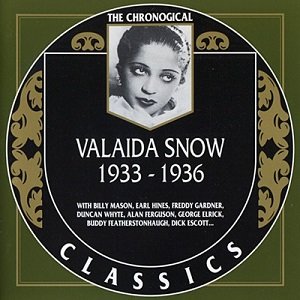
Valaida Snow - 1933-1936 {The Chronological Classics, 1158}
When Valaida Snow sat in with Earl Hines & His Orchestra on February 3, 1933, she sounded at first like an auditioning youngster. That is, until the tempo picked up halfway into the song, and Snow began to chortle and swing. If "Maybe I'm to Blame" was a bit of an experiment, the three recordings Snow made in London in January of 1935 are solid evidence of an artist who has found her own style and grown into it. Suddenly, it seems, this woman has established herself in England as a singer and trumpeter with considerable potential. Throughout the spring of 1935 and autumn of 1936, Snow lived up to everyone's expectations. Sounding at times like Ethel Waters, Josephine Baker, or Blanche Calloway, she spruces up each Tin Pan Alley tune with her own personality. In most cases that means cutting up, teasing the band, and inserting remarks in the manner of Louis Armstrong or Fats Waller. The Waller connection is apparent to anyone familiar with his discography; "You're Not the Kind," "Until the Real Thing Comes Along," and especially "I Wish I Were Twins" are funnier when Waller sings them, but Snow's approach is immediately likable. Her own sense of humor is more evident on "I Can't Dance (I Got Ants in My Pants)," which ends with her exclaiming "oooh!" as if the ants are somehow turning her on. For sheer joie de vivre, "Singin' in the Rain" is possibly the happiest record Snow ever made. In some instances she milks the more sentimental songs for emotional high drama, even sounding a bit like Ruth Etting or Adelaide Hall from time to time. As for Snow's trumpeting, she almost always appeared with a band that contained a second trumpeter who could back her up while she sang, and with whom she would sometimes joust, as in the thrilling twin-trumpet exchange on "I Wish I Were Twins." The trumpeters involved in 1935 and 1936 were Duncan Whyte and Harry Owen. Everyone who loves old-fashioned jazz ought to discover Snow and get to know her music. The plot thickens in the next two volumes of the complete chronological recordings of Valaida Snow, carefully reissued by Classics.
01. Maybe I'm To Blame (3:11)
02. Poor Butterfly (3:00)
03. I Wish I Were Twins (2:37)
04. I Can't Dance (2:42)
05. It Had To Be You (3:07)
06. You Bring Out The Savage In Me (2:55)
07. Imagination (3:14)
08. Sing, You Sinners (2:36)
09. Whisper Sweet (2:36)
10. Singin' In The Rain (2:57)
11. Until The Real Thing Comes Along (3:23)
12. High Hat, Trumpet And Rhythm (3:03)
13. I Want A Lot Of Love (3:21)
14. Take Care Of You For Me (3:12)
15. Lovable And Sweet (2:52)
16. I Must Have That Man (3:12)
17. You're Not The Kind (3:07)
18. You Let Me Down (3:21)
19. Mean To Me (3:11)
20. Dixie Lee (2:44)

Valaida Snow - 1937-1940 {The Chronological Classics, 1122}
When Valaida Snow played her trumpet, she sounded a bit like Herman Autrey, Emmett Berry, or Shad Collins. As a singer she could be compared with Lil Hardin Armstrong, Ethel Waters, Adelaide Hall, or Josephine Baker, depending upon the material in question. Established in London as a reigning queen of trumpet and sweet-to-hot vocals, Snow continued to take on songs that were closely associated with Fats Waller, such as "Sweet Heartache," which was given its all-time best interpretation by Fats Waller & His Rhythm band three months prior to the rendition heard here. On the London sessions during July of 1937, Snow was backed with a seven-piece swing band. Trumpeter Johnny Claes rode shotgun trumpet, as it were, providing support while Snow sang in her pretty, pert voice. This woman's music grows on you, and several of the performances on this disc -- "I Got Rhythm" and the breakneck "Tiger Rag" in particular -- are swing jams of the highest order. Hearing Snow's sultry presentation of "Caravan" is an experience not to be missed. By this time -- 1939 -- our singer and trumpeter had made her way into Scandinavia, recording four sides for the Sonora label in Stockholm. She was even presented with a gold trumpet by Queen Wilhelmina of The Netherlands! The last four titles on this disc find Snow visiting Copenhagen in July of 1940, cheerfully recording for Tono Records and apparently unaware that the forces of Nazi Germany were about to alter her life in the rudest manner imaginable. The rest of the Valaida Snow story can be found on the third and last volume of her complete recordings, Classics 1343.
01. The Mood That I'm In (2:59)
02. Sweet Heartache (2:54)
03. Don't Know If I'm Comin' Or Goin' (2:46)
04. Where Is The Sun? (2:43)
05. Some Of These Days (2:56)
06. Chloe (3:10)
07. Swing Is The Thing (3:11)
08. Nagasaki (3:14)
09. I Wonder Who Makes Rhythm (2:56)
10. I Got Rhythm (3:14)
11. I Can't Believe That You're In Love With Me (2:52)
12. Tiger Rag (3:03)
13. Minnie The Moocher (2:21)
14. Caravan (3:32)
15. Swing Low, Sweet Chariot (2:57)
16. My Heart Belongs To Daddy (2:55)
17. You're Driving Me Crazy (2:21)
18. Take It Easy (3:17)
19. I Can't Give You Anything But Love (3:11)
20. St. Louis Blues (2:28)
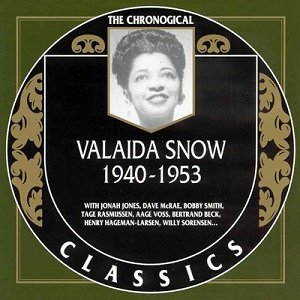
Valaida Snow - 1940-1953 {The Chronological Classics, 1343}
When Valaida Snow made a handful of hot records in Copenhagen during October of 1940, she had no idea that her recording career was about to be violently interrupted for nearly five years by people working for Adolf Hitler. Nazi Germany had already occupied Denmark when these "degenerate" jazz records were surreptitiously created in violation of the Nuremberg laws. In a horrible twist of fate, Snow was arrested by the Gestapo, charged with theft and drug use -- two activities at which the Nazis themselves excelled -- and spent many months in a concentration camp before being rescued by influential friends and sent back to the U.S. weighing about 70 lbs. Everything she'd owned had been confiscated, including the gold trumpet given her by Queen Wilhelmina. It took Snow several years to recuperate and gather her strength for a comeback. Her last two authentic swing records are placed at the beginning of this disc. These are amazingly gutsy performances of nice old songs, and she scats beautifully during "Carry Me Back to Old Virginny." The contrast between this pair of pleasant, cheerful stomps and the rest of the material in the chronology -- beginning with the Apollo session of 1945 -- is startling. Recording in New York for the first time since 1933 and sounding at times like young Dinah Washington, Snow sings three torchy ballads and a novelty bounce backed by Bobby Smith, his alto sax and orchestra. The bounce in question is called "Around the World" and features two harmonizing Valaidas in an early example of overdubbing. Her next couple of recording dates took place in Los Angeles, where prevailing pop production values seem to have infected the atmosphere alarmingly. Eight sides issued on the Bel-Tone label prove that Snow was a powerful singer who could flourish in front of any ensemble, even the huge orchestra with strings, flutes, and a keening vocal group billed as the Daydreamers. Snow prevails throughout, especially on "Lonesome Road," where her passionate singing transcends the entire ungainly production menagerie. On the second Bel-Tone session, Snow navigates well through the "exotic" orchestral score of "Caravan." Her ominously paced version of "Solitude" makes for an interesting comparison with Billie Holiday's approach to this Ellington opus. After a pokey, pouty, and slightly insane-sounding lament bearing the almost too-appropriate title "Frustration," Snow sails into "I Must Have That Man." With a brassy big band behind her, the singer sounds more at home than on any of the previous seven selections. From here on out Valaida Snow's story shifts into R&B territory. Recording for the Derby label in January of 1950, she was backed with a rocking jump band led by Jimmy Mundy, spiked with the fiery presences of baritone saxophonist Dave McRae and hot trumpeter Jonah Jones. "Tell Me How Long the Train's Been Gone" is the cooker. "Chloe" begins with bass clarinet tones and delivers an incredible emotional charge as Snow belts out the lyrics with theatrical intensity. "Coconut Head" is a calypso novelty number, somewhat of a trend in 1950 -- even Sarah Vaughan did a number like this back then. The saga of Valaida Snow tapers off abruptly with two exciting R&B performances recorded in Chicago in 1953. "I Ain't Gonna Tell," a funky baritone sax rocker, is a tantalizing taste of further developments the world would never get to hear from this tough little woman. Underappreciated and grievously underpaid, she struggled to establish herself as a performer in a country where the public had never been all that aware of her existence. Following a performance at New York's Palace Theatre she was felled by a stroke and passed away at the age of 50 in a Brooklyn hospital on the 30th of May 1956.
01. Some Of These Days (2:37)
02. Carry Me Back To Old Virginny (2:49)
03. The More I Know About Love (2:22)
04. Around The World (2:33)
05. Porgy (2:46)
06. My Heart Is Such A Fool (2:00)
07. Fool That I Am (3:04)
08. It's The Talk Of The Town (2:57)
09. Lonesome Road (2:56)
10. If I Only Had You (2:43)
11. Caravan (2:56)
12. Solitude (2:53)
13. Frustration (2:55)
14. I Must Have That Man (2:10)
15. Tell Me How Long The Train's Been Gone (3:07)
16. When A Woman Loves A Man (2:35)
17. Chloe (3:08)
18. Coconut Head (2:55)
19. I Ain't Gonna Tell (2:36)
20. If You Don't Mean It (2:56)
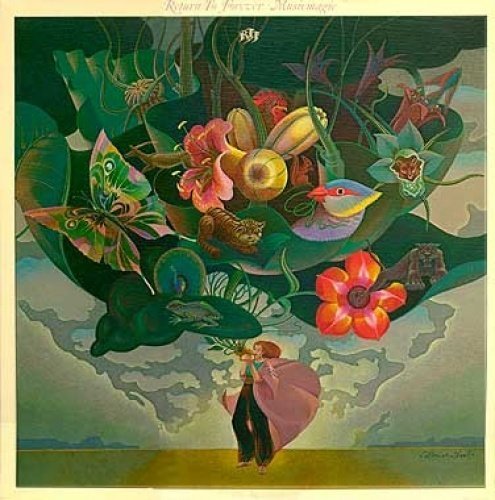
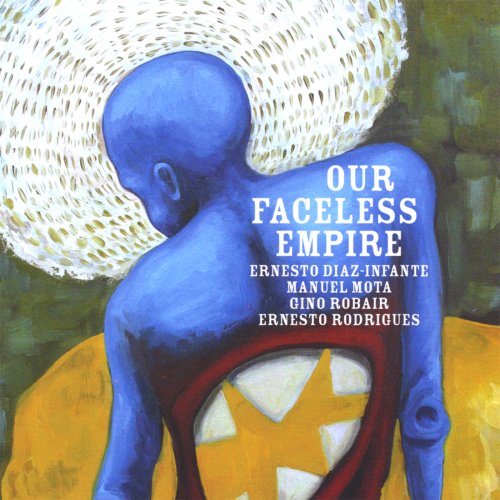

![L'Oiseau Ravage - Vertiges de la mue (2026) [Hi-Res] L'Oiseau Ravage - Vertiges de la mue (2026) [Hi-Res]](https://img.israbox.com/img/2026-02/20/nx23lj9uf6shoeud9r81rkfqi.jpg)


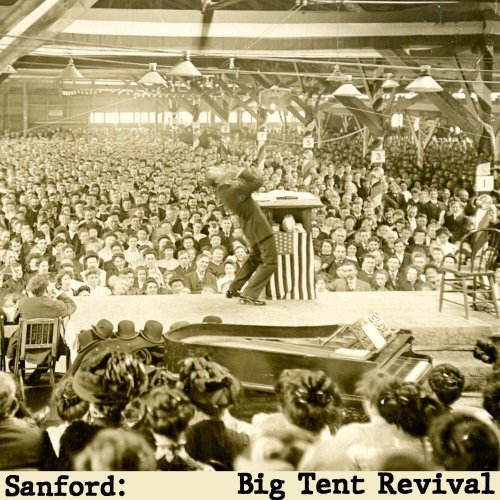
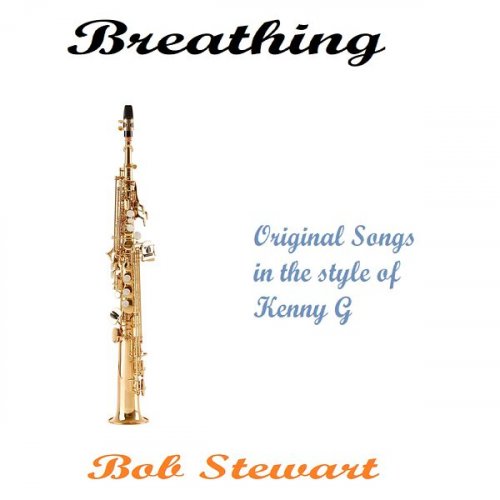
![Lisanne Lyons - May I Come In (2026) [Hi-Res] Lisanne Lyons - May I Come In (2026) [Hi-Res]](https://www.dibpic.com/uploads/posts/2026-02/1771506063_vqohcely45tnt_600.jpg)